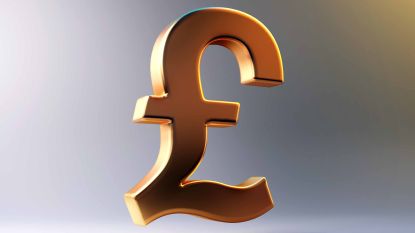The British pound recently fell to its lowest value ever relative to the U.S. dollar. So if you’re thinking of traveling to the United Kingdom for a fall visit, you couldn’t have asked for better timing from a currency exchange perspective. Your money will go farther across the pond than it ever has.
There are several reasons why the pound has depreciated to such an extent. However, the biggest reason it has fallen in value is the mini-budget introduced on Sept. 23 by the cabinet of newly appointed British Prime Minister Liz Truss.
The Conservative government introduced the most extensive tax cuts in Britain since 1988, when Margaret Thatcher was the prime minister. Cuts include eliminating the top tax rate of 45% – people earning more than $161,327 will now pay the current 40% rate – a year before the government intended for it to disappear.
Subscribe to Kiplinger’s Personal Finance Be a smarter, better informed investor.
Save up to 74%
Sign up for Kiplinger’s Free E-Newsletters Profit and prosper with the best of Kiplinger’s expert advice on investing, taxes, retirement, personal finance and more – straight to your e-mail.
Profit and prosper with the best of Kiplinger’s expert advice – straight to your e-mail.
The tax cuts are projected to cost the U.K. Treasury $48 billion in revenue over the next five years. Estimates suggest that approximately half of the tax savings will go to the country’s wealthiest 5% of households.
Huw Pill, chief economist of the Bank of England, believes the tax cuts will accelerate inflation in the U.K. As a result, interest rates will likely have to go much higher than initially projected.
“In my view, a combination of the fiscal announcements we have seen will act as a stimulus to demand in the economy,” Pill said, as reported by The Guardian (opens in new tab). “It is hard not to draw the conclusion that this will require a significant monetary policy response.”
Moreover, a weak British pound means imported products will be more costly, adding to the inflationary pressures already facing the country.
As for U.S. investors, the faltering pound will be good for importers of British goods, such as grocery stores, car dealerships, apparel, etc. However, businesses that generate big sales in the U.K., such as automaker Ford Motor (F (opens in new tab)), beverage giant Coca-Cola (KO (opens in new tab)) and financial services firm Marsh & McLennan (MMC (opens in new tab)), will face greater headwinds trying to grow revenues and profits there.
Morgan Stanley equity strategist Michael Wilson estimates that a 1% increase in the U.S. dollar versus a basket of global currencies results in a 0.5% decline in earnings for the average S&P 500 company.
“The recent move in the U.S. dollar creates an untenable situation for risk assets (like stocks) that historically has ended in a financial or economic crisis, or both,” Wilson says. “While hard to predict such ‘events,’ the conditions are in place for one, which would help accelerate the end to this bear market.”
The British pound has since stabilized after the Bank of England overnight announced an emergency bond-buying program “to restore orderly market conditions.” Still, the message to U.S. investors trying to find ways to benefit from the weak currency is clear.
The average retail investor should continue to focus on buying quality U.S. stocks with significant domestic revenues and solid overseas businesses. The current market volatility isn’t a time to be trying to thread the needle.
